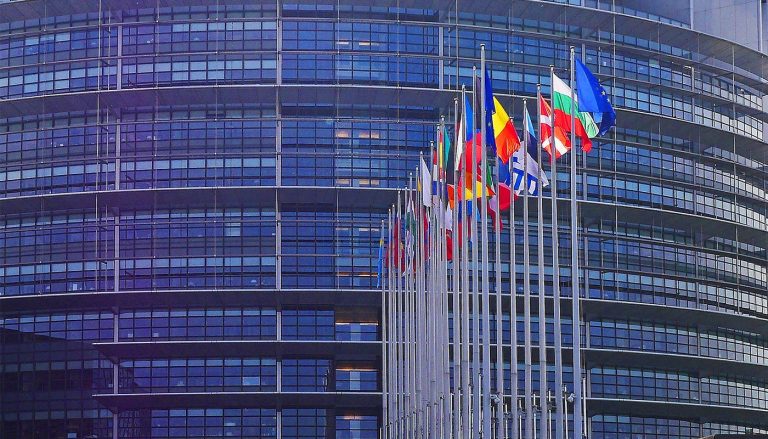7 de julio 2021

Children of Exile: The Births “Sowing Hope” in the Camp of Nicaraguan Farmers

PUBLICIDAD 1M
PUBLICIDAD 4D
PUBLICIDAD 5D

European Parliament deputies demanded that the European Union impose further sanctions on high functionaries of the Ortega regime
European Parliament deputies of different nationalities and political leanings demanded that the European Union impose further sanctions on high functionaries of the Ortega regime, including President Daniel Ortega, and Rosario Murillo, his first lady and vice president.
Over twenty deputies from the European Parliament spoke during a one-hour debate on the Nicaraguan political and human rights crisis. The session was held on Tuesday, July 6, at the seat of the European Parliament in Strasburg, France. Only Manu Pineda, the Spanish representative from the Group of the Left, avoided any reference to sanctions during her participation.
“Ortega says he’s accustomed to being called all sorts of things, but I believe that – like all dictators – he’s not accustomed to having us dismantle the tangle of corruption that underpins his authoritarian regime,” stated Soraya Rodriguez Ramos, a member of the European Parliament’s Commission for Foreign Affairs and spokesperson for Human Rights matters.
“We have an ample margin, so let’s levy strong sanctions on Ortega, Murillo and their family conglomerate. They’ve transformed Nicaragua into a family business, where there’s only repression, suffering and injustice,” she added.
“We must send a clear message,” Rodriguez continued: “Dialogue, yes, but the sanctions must be enhanced. And a message for the European Council as well: six high officials sanctioned is too little, given the excessive impunity and suffering in Nicaragua,” Within the European Parliament, Soraya Rodriguez has been one of the voices most critical of the Ortega regime.
On May 4, 2020, the European body sanctioned six high officials of the Ortega regime. Among them were four heads of police: National Police Commissioner Francisco Diaz; and Commissioners Luis Alberto Pérez Olivas, Justo Pastor Urbina and Ramón Avellán. They also sanctioned presidential advisor Nestor Moncada Lau and former health minister Sonia Castro.
Josep Borrell, the European Union’s high representative for foreign affairs and security policy, opened and closed the debate. He noted: “the situation (in Nicaragua) has reached such an extreme that, without a doubt, the EU member States will have to study more concrete actions, beyond just saying: “Enough now Mr. Ortega”. The situation merits it.
In the last five weeks, the Ortega regime has jailed 26 opposition leaders, among them presidential candidates, activists, journalists, and former guerrilla leaders.
The latest arbitrary detentions took place the night of July 5th, when the Police, under his orders, arrested presidential candidate Medardo Mairena, as well as farm movement leaders Pedro Mena and Freddy Navas. Also jailed were university students Lesther Aleman and Max Jerez. Another rural leader, Pablo Morales, is missing, although police haven’t yet confirmed whether or not he’s in their custody.
“We can take further measures that go beyond those taken in May 2020. For a year, we haven’t passed any more restrictive measures, although the United States and Canada have done so. Probably the member States want to consider this,” Borrell stated.
Before the EU can impose sanctions, first the high representative for foreign affairs must present a proposal. This is then analyzed in different bodies within each member country and within the European Council. Later, it must be voted on by the ministers, whose vote must be unanimous. The decision enters into effect once published in the EU Official Daily.
A vote is scheduled for Thursday, July 8, to approve a resolution regarding the situation in Nicaragua. Following the July 6 debate, the parliamentary groups can send their proposed wording, to be grouped in a single document.
Since Nicaragua’s civic uprising in April 2018, the European Parliament has approved four resolutions regarding the crisis in that country. One was passed in May 2018; another in March 2019, following the visit of a delegation of European deputies to Nicaragua. A third resolution was approved in December 2019, and the latest in October 2020.
This article was originally published in Spanish in Confidencial and translated by Havana Times
PUBLICIDAD 3M
Confidencial es un diario digital nicaragüense, de formato multimedia, fundado por Carlos F. Chamorro en junio de 1996.
PUBLICIDAD 3D